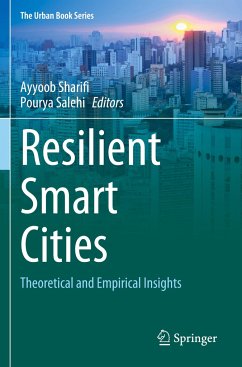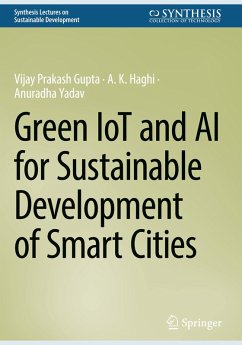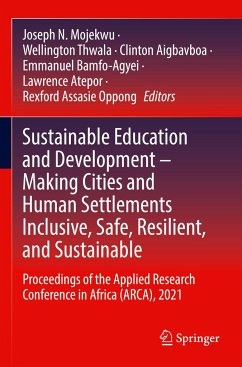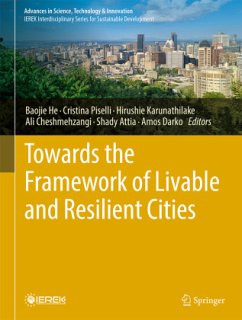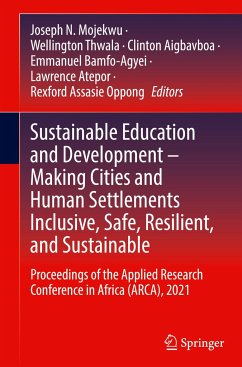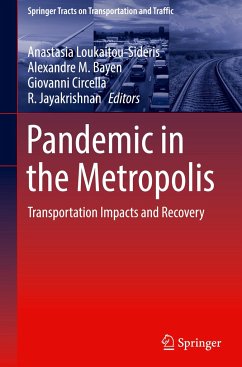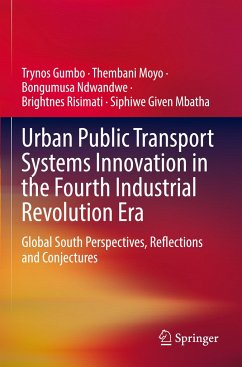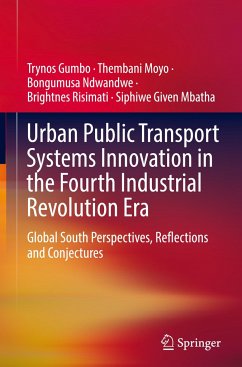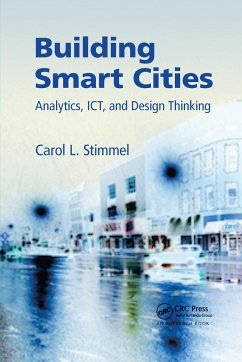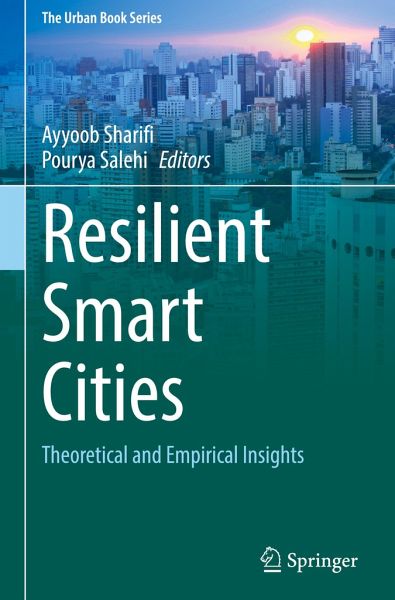
Resilient Smart Cities
Theoretical and Empirical Insights
Herausgegeben: Sharifi, Ayyoob; Salehi, Pourya

PAYBACK Punkte
65 °P sammeln!
This book provides a thorough guide to building resilient cities, through the use of smart solutions enabled by information and communication technologies. It introduces innovative approaches for integrating smart solutions into urban resilience planning and offers numerous global case studies to illustrate the benefits of the theories discussed.Against a background of increased natural disasters, pandemics, and climate change, this book answers research questions such as:- Do smart city projects contribute to urban climate resilience?- What are the indicators of smart city resilience?- What p...
This book provides a thorough guide to building resilient cities, through the use of smart solutions enabled by information and communication technologies. It introduces innovative approaches for integrating smart solutions into urban resilience planning and offers numerous global case studies to illustrate the benefits of the theories discussed.
Against a background of increased natural disasters, pandemics, and climate change, this book answers research questions such as:
- Do smart city projects contribute to urban climate resilience?
- What are the indicators of smart city resilience?
- What procedures should be taken to improve efficacy of smart city solutions?
- What are the opportunities and challenges for promoting smart city resilience and for integrating resilience thinking into smart city planning?
Including contributions from international experts, explanatory illustrations, and data-driven tables, this book is of interest to researchers, policymakers, and graduate students focused on developing more sustainable, smart, and resilient cities.
Against a background of increased natural disasters, pandemics, and climate change, this book answers research questions such as:
- Do smart city projects contribute to urban climate resilience?
- What are the indicators of smart city resilience?
- What procedures should be taken to improve efficacy of smart city solutions?
- What are the opportunities and challenges for promoting smart city resilience and for integrating resilience thinking into smart city planning?
Including contributions from international experts, explanatory illustrations, and data-driven tables, this book is of interest to researchers, policymakers, and graduate students focused on developing more sustainable, smart, and resilient cities.



